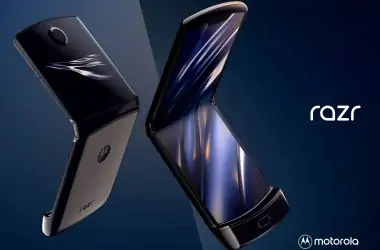There is just about constant talk these days about the technology we see and interact with on a daily basis. We engage with new smartphones and tablets, new devices for our homes, increasingly sophisticated cars, and so on. But sometimes the most significant tech upgrades in the modern world — the ones that will truly change the world — go largely unnoticed.
This is our look at some of those technologies, which are poised to almost invisibly make our world a safer and more functional place.
Technologies That Will Change The World (Invisibly)
1. Lidar
Lidar (sometimes written “LIDAR” or “LiDAR”) is a laser-based distance-measuring technology. A laser is used to pinpoint an object, and the reflection back from that object can help to establish a clear understanding of the distance between the source of the lidar and the object in question.
As you might imagine there are numerous potential uses for a technology like this. But the most significant one for the modern world may well be its application in self-driving vehicles. Per Wired’s guide to self-driving car tech, companies are racing to make lidar more affordable, so as to bring about faster production of these vehicles. It’s one of the chief technologies used in enabling cars to intelligently manage situations on the road on their own.
Now, it’s important to understand that we’re not quite as close to self-driving cars as many would like to believe. Our article on ‘Why Simulation is the Key to Test, Train & Build Self-Driving Cars’ pointed out that countless miles’ worth of tests are still needed if we’re to prove the safety of fully autonomous cars. But if we do see improvements in lidar (both in function and affordability), we’ll be that much closer. More self-driving cars would make commutes faster, make roads safer, and ultimately contribute to changes on the road that will drastically reduce pollution.
2. Better PCBs
PCBs (printed circuit boards) already have a great deal to do with how our world operates. They’re the central cores of almost all meaningful electronics, and without them, we wouldn’t be able to enjoy the countless devices we all use every day. However, as big a role as PCBs already play, improvements in how they’re designed will make them all the more significant.
An Altium article on power delivery system design for PCBs does a nice job of illuminating just how much power goes into these little boards today. As that article puts it, “integrated circuit technology allows for billions of transistors on a single IC,” which results in very powerful systems on chips. This is basically allowing for the design of stronger devices — sometimes in smaller packages.
The most significant result of these improvements in PCBs may well be the Internet of Things. A broader network of strong remote devices (which can gather data) and highly capable computers (which can make use of that data) will bring about innumerable positive consequences for the world. We’ll be able to make homes more secure, make roads and cities safer, and preserve the environment more effectively — and even those points are only scratching the surface.
3. Machine Learning
Machine learning is a fairly broad topic — but it still falls under the heading of largely invisible tech that’s poised to change the world. A Daffodil Software post on Medium about machine learning and its applications can give you some idea of why the concept is so significant. Said post lists things like online fraud detection, malware filtering, the emergence of virtual personal assistants, and more all as benefits the average person could see from machine learning. And that’s to say nothing of more big-picture benefits, such as advances in robotics (including self-driving) or smarter agriculture.
Recommended: What will the future of AI look like?
These are all ultimately technologies you won’t necessarily see. Lidar operates invisibly; PCBs are hidden within devices, and machine learning is not a visual concept. Nevertheless, it’s a virtual certainty that your life will be affected (and improved!) by all of the above in the years to come.









